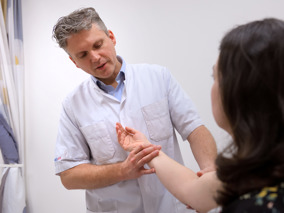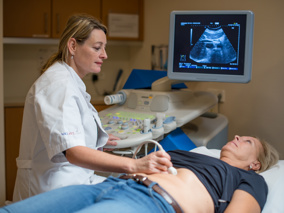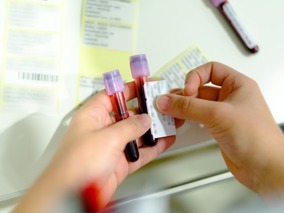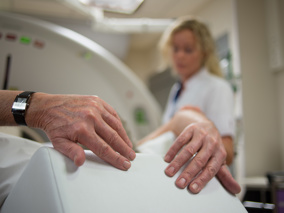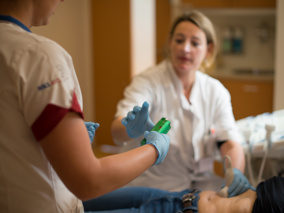Testicular cancer (testicular tumor)
Testicular cancer is the most common type of cancer in young men. Another word for testicular cancer is testicular tumor. In the Netherlands, there are more and more men diagnosed with testicular cancer. In 2017, 800 men developed testicular cancer. In 2024, there were 900.
The condition has received increasing attention in recent years. The Testicular Cancer Foundation therefore started the 'Check your kiwis' campaign.
On this page you can read more about the symptoms, examinations and treatments for testicular cancer.
More information about testicular cancer (testicular tumor)
Causes of testicular cancer
We do not know exactly what causes testicular cancer. We do know what the risk factors are. For example, a testicle that has not descended in childhood can be a risk. Men are also more likely to develop testicular cancer if it has previously run in the family.
Symptoms of testicular cancer
Symptoms of testicular cancer may include:
- A lump, hardening or enlargement of a testicle
- A swelling just above the collarbone
- Tender or swollen mammary glands
- Low back pain
Not every change in the testicle is dangerous. Do you feel a hardening or a lump? Then have yourself examined by a doctor.
Types of testicular cancer
The two most common types of testicular cancer are seminomas and nonseminomas. Seminomas arise from germ cells that normally develop into germ cells. Non-seminomas originate from embryonic cells. About half of men with testicular cancer have a seminoma, the other half a non-seminoma.
Self-examination
Regularly examine your scrotum and testicle yourself. If testicular cancer is detected early, the chance of successful treatment is greatest.
On the page of zaadbalkanker.nl you can read more about self-examination.
Testicular cancer treatment
The treatment you receive depends on the type of tumour. Your health and fitness also play a role. The doctor will explain well in advance what is going to happen and you will have plenty of time to ask questions.
Stage of the tumor
Two-thirds of men have stage I testicular cancer, so no metastases. One third has stage II or higher. Stage II–III means metastases to lymph nodes below or above the diaphragm. Stage IV means spreading through the blood, for example to the lungs.
Waiting
We want to inform you as well as possible about the waiting time per condition. We do this based on a prognosis of the current waiting list. The waiting time can vary from patient to patient for various reasons. Your attending physician will give you more information during your outpatient consultation.
-
7 days
First appointment
This is approximately how long it will take until you have your first appointment
-
6 days
Rapid diagnostics
This is approximately how long it will take before you can start rapid diagnostics at the NKI
-
14 days
Second opinion
This is approximately how long it will take before you come in for a second opinion at the NKI
 nl
nl


